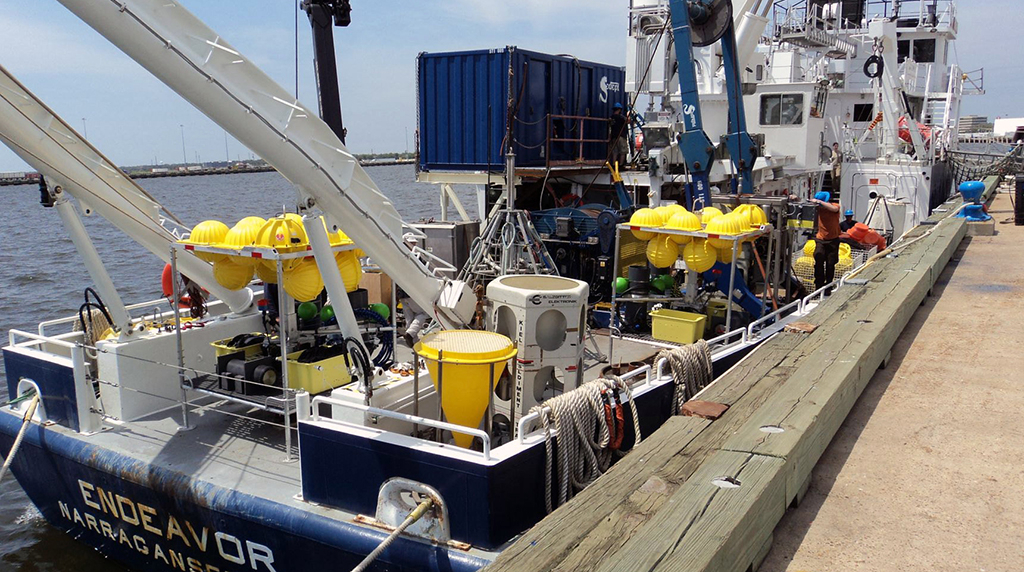April 18, 2012
Dr. Vernon Asper (Chief Scientist) with the University of Mississippi and 18 scientists sailed from Gulfport, MS on April 12th on the R/V Endeavor for the first of six research cruises.
The researchers are using a remotely-operated vehicle (ROV) to collect data about the impacts of natural seepage versus large, abrupt oil impacts in deepwater ecosystems. The ECOGIG research cruises will visit natural seep sites in the northern Gulf of Mexico, sites impacted by the Macondo blowout, including deepwater coral sites, and control sites.
Highsmith is the director of the Gulf of Mexico Research Initiative (GoMRI) ECOGIG consortium which brings together physical oceanographers, marine biologists, and chemists from 14 research institutions to understand the impacts of hydrocarbon inputs in deepwater ecosystems in the Gulf of Mexico and to chart the long-term effects and mechanisms of ecosystem recovery from the Deepwater Horizon incident.
This research was made possible by a grant from BP/The Gulf of Mexico Research Initiative. The GoMRI is a 10-year, $500 million independent research program established by an agreement between BP and the Gulf of Mexico Alliance to study the effects of the Deepwater Horizon incident and the potential associated impact of this and similar incidents on the environment and public health.
This article originally appeared here.


















 back to top
back to top